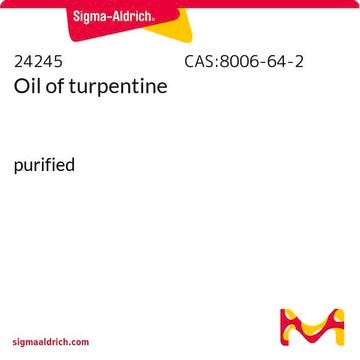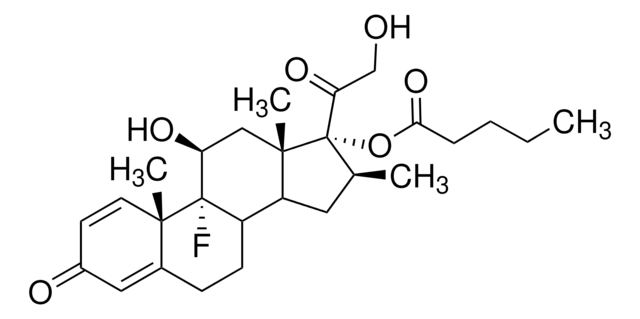All Photos(1)
About This Item
CAS Number:
FEMA Number:
2116
EC Number:
Council of Europe no.:
298n
MDL number:
UNSPSC Code:
12164502
NACRES:
NA.21
Recommended Products
grade
Kosher
Quality Level
refractive index
n20/D 1.5690 (lit.)
density
1.161 g/mL at 25 °C (lit.)
application(s)
flavors and fragrances
documentation
see Safety & Documentation for available documents
food allergen
no known allergens
organoleptic
balsamic; woody; sweet; vanilla
Looking for similar products? Visit Product Comparison Guide
Biochem/physiol Actions
Taste at 10 ppm
Disclaimer
For R&D or non-EU Food use. Not for retail sale.
Certificates of Analysis (COA)
Search for Certificates of Analysis (COA) by entering the products Lot/Batch Number. Lot and Batch Numbers can be found on a product’s label following the words ‘Lot’ or ‘Batch’.
Already Own This Product?
Find documentation for the products that you have recently purchased in the Document Library.
J M Fernández-Vozmediano et al.
Actas dermo-sifiliograficas, 102(3), 206-211 (2011-02-22)
One of the greatest challenges in occupational dermatology is the identification of chemical substances used by patients in their work in order to determine their allergenic potential. Numerous techniques have been described for the identification of allergenic compounds. These tests
Petra Turić et al.
Collegium antropologicum, 35(1), 83-87 (2011-06-15)
Because of their widespread use, fragrances are among the most common causes of contact allergic dermatitis, second only to nickel. During a five-year period 3,065 patients with contact dermatitis were patch tested using a specific mix of fragrances. 509 (16.6%)
Eli Magen et al.
The American journal of the medical sciences, 341(3), 202-206 (2011-01-15)
Patch testing is performed to diagnose allergic contact dermatitis to avoid exposure to the revealed contact allergens. Nevertheless, patch testing is not routinely performed in the evaluation of patients with chronic idiopathic (spontaneous) urticaria (CIU). The objective of this study
Stephanie Tan et al.
The Australasian journal of dermatology, 52(3), 222-223 (2011-08-13)
Two patients presented with cheilitis and perioral dermatitis. Patch testing revealed positive reactions to both Myroxylon pereirae (MP; formerly known as Balsam of Peru) and Lucas Papaw Ointment (LPO; Lucas Papaw Remedies, Bisbane, Qld, Australia). MP was not listed as
Selected antimicrobial essential oils eradicate Pseudomonas spp. and Staphylococcus aureus biofilms.
Nicole L Kavanaugh et al.
Applied and environmental microbiology, 78(11), 4057-4061 (2012-04-03)
Biofilms are difficult to eliminate with standard antimicrobial treatments due to their high antibiotic resistance relative to free-living cells. Here, we show that selected antimicrobial essential oils can eradicate bacteria within biofilms with higher efficiency than certain important antibiotics, making
Our team of scientists has experience in all areas of research including Life Science, Material Science, Chemical Synthesis, Chromatography, Analytical and many others.
Contact Technical Service









